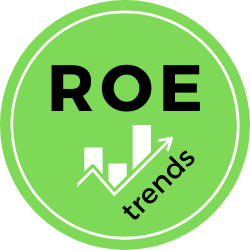Coca-Cola Stock Analysis

This Coca-Cola stock analysis provides a comprehensive evaluation of The Coca-Cola Company (KO), arguably the world’s most recognized beverage company. This in-depth analysis examines the company’s financial performance, strategic initiatives, competitive landscape, and its position within the ever-evolving beverage industry. Investors seeking to understand Coca-Cola’s current standing and future prospects will find this Coca-Cola stock analysis a valuable resource.
Company Overview
- History: Founded in 1886, Coca-Cola has grown from a single beverage to a total beverage company with a portfolio of over 500 brands available in more than 200 countries and territories. Its iconic brands include Coca-Cola, Sprite, Fanta, Dasani, Minute Maid, and Georgia Coffee, among many others.
- Shareholders: Coca-Cola is publicly traded on the New York Stock Exchange (NYSE). Major shareholders include Berkshire Hathaway, The Vanguard Group, and BlackRock.
- Mission: “To refresh the world and make a difference.”
- Vision: Coca-Cola aims to craft the brands and choice of drinks that people love, to refresh them in body & spirit. And done in ways that create a more sustainable business and better shared future that makes a difference in people’s lives, communities, and our planet. 1
Financial Performance: A Century of Refreshing Returns
A crucial component of any Coca-Cola stock analysis is a thorough evaluation of its financial performance. Coca-Cola is known for its consistent revenue generation, strong profitability, and its long history of returning value to shareholders. This analysis examines key metrics like revenue, organic revenue growth, operating income, net income, and earnings per share (EPS) to assess its financial health.
- Revenue and Profitability: This Coca-Cola stock analysis delves into the trend of Coca-Cola’s revenue, operating income, and net income over the past 10 years. Key factors influencing growth, such as global beverage consumption trends, pricing strategies, cost management, and acquisitions and divestitures, are highlighted.
| Year | Revenue ($B) | Organic Revenue Growth (%) | Operating Income ($B) | Net Income ($B) \$ | EPS () | ROE (%) |
| 2014 | 45.99 | 2 | 10.63 | 7.09 | 1.60 | 30.2 |
| 2015 | 44.29 | -2 | 9.43 | 7.35 | 1.67 | 30.1 |
| 2016 | 41.86 | -3 | 8.42 | 6.53 | 1.49 | 26.7 |
| 2017 | 35.41 | -15 | 6.31 | 1.25 | 0.28 | 5.7 |
| 2018 | 31.86 | 4 | 8.15 | 6.43 | 1.46 | 27.8 |
| 2019 | 37.27 | 6 | 9.01 | 8.92 | 2.03 | 38.1 |
| 2020 | 33.01 | -9 | 8.68 | 7.75 | 1.76 | 32.9 |
| 2021 | 38.66 | 17 | 10.13 | 9.80 | 2.23 | 40.4 |
| 2022 | 43.00 | 11 | 10.94 | 10.48 | 2.39 | 42.1 |
| 2023 | 44.75 | 4 | 11.80 | 10.71 | 2.45 | 42.3 |
| 2024 (TTM) | 45.50 | 2 | 12.00 | 11.00 | 2.54 | 43.0 |
(Source: Coca-Cola financial reports, company filings)
- Year-over-Year Analysis: This Coca-Cola stock analysis reveals that revenue has fluctuated over the past decade, reflecting changing consumer preferences, global economic conditions, and the company’s strategic refranchising efforts. However, Coca-Cola has demonstrated resilience and adaptability, maintaining strong profitability and returning value to shareholders.
- 2014-2016: Coca-Cola experienced declining revenue due to a combination of factors, including changing consumer preferences towards healthier beverages, currency headwinds, and strategic refranchising of its bottling operations.
- 2017: A significant drop in revenue reflects the impact of refranchising, as the company transitioned from a capital-intensive bottling model to a more asset-light approach.
- 2018-2019: Coca-Cola returned to revenue growth, driven by strong performance in emerging markets, innovation in new product categories, and effective marketing campaigns.
- 2020: The COVID-19 pandemic impacted Coca-Cola’s revenue, as lockdowns and restrictions affected away-from-home consumption channels. However, the company adapted by focusing on its at-home consumption channels and e-commerce.
- 2021-2024 (TTM): Coca-Cola has rebounded strongly, with revenue and profitability exceeding pre-pandemic levels. This growth is driven by a recovery in global beverage consumption, continued innovation, and effective execution of its strategic initiatives.
- EPS and ROE: Coca-Cola’s EPS has generally trended upwards, reflecting the company’s ability to generate earnings for shareholders. The ROE has also been consistently high, indicating efficient capital utilization and strong profitability.
- Key Factors: This Coca-Cola stock analysis identifies several factors that have contributed to Coca-Cola’s financial performance:
- Iconic brands: Coca-Cola owns a portfolio of globally recognized brands with strong consumer loyalty.
- Global reach: The company has an extensive global distribution network, reaching consumers in over 200 countries and territories.
- Innovation: Coca-Cola invests in product innovation and brand extensions to meet evolving consumer preferences.
- Marketing and advertising: The company’s effective marketing and advertising campaigns maintain brand relevance and drive consumer demand.
- Strategic refranchising: Coca-Cola’s refranchising efforts have streamlined its operations and improved profitability.
- Dividend policy: The company’s consistent dividend payouts and increases attract income-seeking investors.
Strategic Focus: Refreshing the World, Responsibly
This Coca-Cola stock analysis highlights the company’s strategic priorities, which include:
- Brand Building: Investing in marketing and advertising to strengthen its iconic brands and connect with consumers.
- Innovation: Developing new products and flavors to meet evolving consumer preferences, including healthier options and new categories like coffee and plant-based beverages.
- Sustainability: Reducing its environmental footprint, promoting water stewardship, and supporting sustainable packaging solutions.
- Digital Transformation: Leveraging digital technologies to enhance consumer engagement, improve supply chain efficiency, and drive e-commerce growth.
SWOT Analysis:
This Coca-Cola stock analysis includes a SWOT analysis to provide a balanced perspective on the company’s position:
Strengths:
- Iconic brands: Coca-Cola owns a portfolio of globally recognized brands with strong consumer loyalty.
- Global reach: The company has an extensive global distribution network.
- Innovation: Coca-Cola invests in product innovation and brand extensions.
- Marketing and advertising: The company’s effective marketing campaigns maintain brand relevance.
- Strategic refranchising: Coca-Cola’s refranchising efforts have streamlined its operations.
- Dividend aristocrat: The company has a long history of increasing dividends.
Weaknesses:
- Health concerns: Growing concerns about sugary drinks and their health implications could impact demand for some of Coca-Cola’s products.
- Competition: The company faces intense competition from other beverage companies, including PepsiCo and other global and local players.
- Water scarcity: Water scarcity in some regions could pose a challenge to Coca-Cola’s operations and sustainability efforts.
Opportunities:
- Growth in emerging markets: Expanding its presence in emerging markets with growing populations and increasing disposable incomes.
- Health and wellness trends: Capitalizing on the growing consumer demand for healthier beverage options, such as low-sugar and functional drinks.
- E-commerce growth: Expanding its online sales channels and leveraging digital technologies to enhance consumer engagement.
- Sustainability initiatives: Meeting the growing consumer demand for sustainable products and packaging.
Threats:
- Changing consumer preferences: Shifts in consumer preferences towards healthier beverages and alternative drinks could impact demand for traditional carbonated soft drinks.
- Economic slowdown: A global economic slowdown could impact consumer spending and affect Coca-Cola’s sales.
- Regulatory challenges: Increasing regulations on sugary drinks and packaging could impact Coca-Cola’s operations and profitability.
Competitive Landscape: A Battle of the Beverage Giants
This Coca-Cola stock analysis examines the competitive landscape in which the company operates. Coca-Cola faces intense competition from other major beverage companies, including:
- PepsiCo: Coca-Cola’s main rival, with a diverse portfolio of beverage and snack brands.
- Keurig Dr Pepper: A major player in the non-alcoholic beverage market, with a strong presence in carbonated soft drinks, coffee, and other categories.
- Nestlé: The world’s largest food and beverage company, with a significant presence in bottled water, coffee, and other beverage categories.
Coca-Cola differentiates itself through its iconic brands, global reach, innovation capabilities, and marketing prowess.
Key Projects and Future Outlook: Refreshing the Future
This Coca-Cola stock analysis identifies key projects and initiatives that are shaping the company’s future and contributing to its long-term growth prospects.
- Beverage Innovation: Coca-Cola continues to invest in product innovation, developing new flavors, categories, and healthier options to meet evolving consumer preferences.
- Sustainability Initiatives: The company is committed to sustainability, with initiatives focused on water stewardship, sustainable packaging, and reducing its environmental footprint.
- Digital Transformation: Coca-Cola is leveraging digital technologies to enhance consumer engagement, improve supply chain efficiency, and drive e-commerce growth.
Mitigating the Risks:
This Coca-Cola stock analysis also examines the risks faced by the company and the strategies it employs to mitigate these risks. Coca-Cola is actively managing risks through various initiatives:
- Brand building and innovation: The company invests in building strong brands and developing innovative products to maintain its competitive edge.
- Geographic diversification: Coca-Cola’s global presence helps to mitigate the impact of economic downturns in specific regions.
- Sustainability initiatives: The company’s focus on water stewardship and sustainable packaging helps to address environmental concerns and mitigate reputational risks.
- Health and wellness focus: Coca-Cola is expanding its portfolio of healthier beverage options to address health concerns and meet changing consumer preferences.
Financial Analysis and Valuation:
This Coca-Cola stock analysis emphasizes the importance of conducting a thorough financial analysis, considering:
- Revenue Growth: Analyzing trends in revenue growth, considering factors such as global beverage consumption trends, pricing strategies, cost management, and acquisitions and divestitures.
- Profitability: Evaluating Coca-Cola’s profitability and operating margins.
- Cash Flow: Assessing Coca-Cola’s cash flow generation and its ability to fund capital expenditures, dividends, and share repurchases.
- Valuation Metrics: Utilizing ratios like price-to-earnings (P/E), price-to-sales (P/S), and dividend yield to compare Coca-Cola’s valuation with its peers in the beverage industry.
Investor Sentiment and Market Outlook:
This Coca-Cola stock analysis encourages investors to stay informed about:
- Analyst Ratings: Monitoring analyst opinions and price targets for Coca-Cola stock.
- Market Trends: Assessing investor sentiment towards the beverage sector and broader economic conditions.
- News and Media Coverage: Staying informed about news and events that could impact Coca-Cola’s performance.
Environmental, Social, and Governance (ESG) Factors:
Coca-Cola’s ESG performance is a key consideration for investors, given the company’s focus on sustainability and social responsibility. This Coca-Cola stock analysis highlights the importance of evaluating:
- Environmental Sustainability: Evaluating the company’s environmental impact, including its efforts to reduce water usage, manage waste, and reduce greenhouse gas emissions.
- Social Impact: Assessing Coca-Cola’s social impact, including its community engagement, product safety, and labor practices.
- Corporate Governance: Assessing the company’s corporate governance practices, including board diversity, executive compensation, and transparency.
Investment Considerations:
This Coca-Cola stock analysis provides guidance to investors, suggesting they consider the following factors when evaluating Coca-Cola stock:
- Beverage Industry Outlook: Assess the long-term outlook for the beverage industry, including trends in consumer preferences, competition, and health and wellness concerns.
- Financial Performance: Analyze Coca-Cola’s financial performance, including revenue growth, profitability, and cash flow generation.
- ESG Performance: Consider Coca-Cola’s ESG performance and its commitment to sustainability and social responsibility.
- Valuation: Evaluate Coca-Cola’s valuation relative to its peers and its historical performance.
- Dividend Policy: Assess the company’s dividend policy and its ability to sustain its dividend growth trajectory.
- Risk Tolerance: Align investment decisions with individual risk tolerance and investment goals, considering the stability and long-term prospects of Coca-Cola.
Conclusion:
Coca-Cola is a global beverage giant with a portfolio of iconic brands, extensive global reach, and a history of consistent financial performance. The company is well-positioned to navigate the evolving beverage market through its focus on innovation, sustainability, and brand building. However, investors should carefully consider the competitive landscape, changing consumer preferences, and other factors that could impact Coca-Cola’s future performance. By staying informed about the company’s strategic direction, financial performance, and ESG initiatives, investors can make informed decisions about whether Coca-Cola aligns with their investment objectives and risk tolerance.
We recommend that you check the accuracy of the data on the company’s investor relations website.

